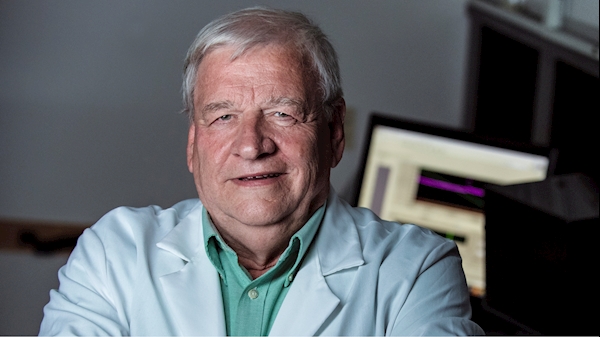Department of Occupational and Environmental Health Sciences seeking participants for heavy metals study
 Michael McCawley, clinical associate professor in the Department of Occupational and Environmental Health Sciences, is leading efforts to better understand the potential relationship between possible exposure of heavy metals and near-term health effects in children as a new mineral wool insulation factory sets to commence operations this summer in Ranson, West Virginia.
Michael McCawley, clinical associate professor in the Department of Occupational and Environmental Health Sciences, is leading efforts to better understand the potential relationship between possible exposure of heavy metals and near-term health effects in children as a new mineral wool insulation factory sets to commence operations this summer in Ranson, West Virginia.
Mineral wool is a generic term, meaning any fibrous material made from minerals (e.g., natural rock) or mineral products, such as glass or slag (a by-product of the steel and copper industry). In the case of the Ranson plant, the raw materials are expected to be different kinds of natural rock.
“The potential for exposure exists because, in addition to stack emissions, there are also five storage piles at the plant site identified in the company’s Air Quality Permit from the West Virginia Department of Environmental Protection,” said McCawley, who has nearly 50 years’ experience studying how ultrafine particles in the atmosphere affect health outcomes.
“The contents of those piles are expected to be similar to the materials seen in the occupational environment of this kind of plant and, therefore, a potential source of heavy metals, which are generally thought of as those comprised of elements such as arsenic, cadmium, chromium, nickel or lead," he added. “The process of moving the materials from the piles into the factory area requires that the material in these piles be constantly mixed and agitated, making them a potential source of atmospheric dusts containing heavy metals."
Four air monitoring locations have been identified within a few miles of the plant. One location is one mile upwind (west) of the plant; the other three are in the dominant downwind direction (east/southeast).
Once the mineral wool facility begins operations, ambient air sampling and hair sampling of children who live or go to school within a five-mile radius of the plant will be conducted, then compared to pre-operational data, which are currently being collected. Hair samples are known to demonstrate ambient exposure to heavy metals proportional to the amount found in the hair.
The hair will be analyzed for levels of toxic trace elements associated with the raw materials that might come from the mineral wool manufacturing process, ultimately helping McCawley and his research team determine whether or not there is an association with plant emissions.
To participate in the study, Jefferson and Berkeley residents with children are encouraged to sign their children up for the study using the anonymous sign-up form.
Samples will be collected on Saturday-Sunday, May 15-16, from 10 a.m. to 5 p.m. at Sam Michaels Park in Jefferson County.
The process should take approximately 20 minutes for each person. For questions about the study, please contact Dr. Michael McCawley.
-WVU-
nl/04/16/21
CONTACT: Michael McCawley or Nikky Luna, Director of Marketing and Communications, WVU School of Public Health, 304-293-1699.